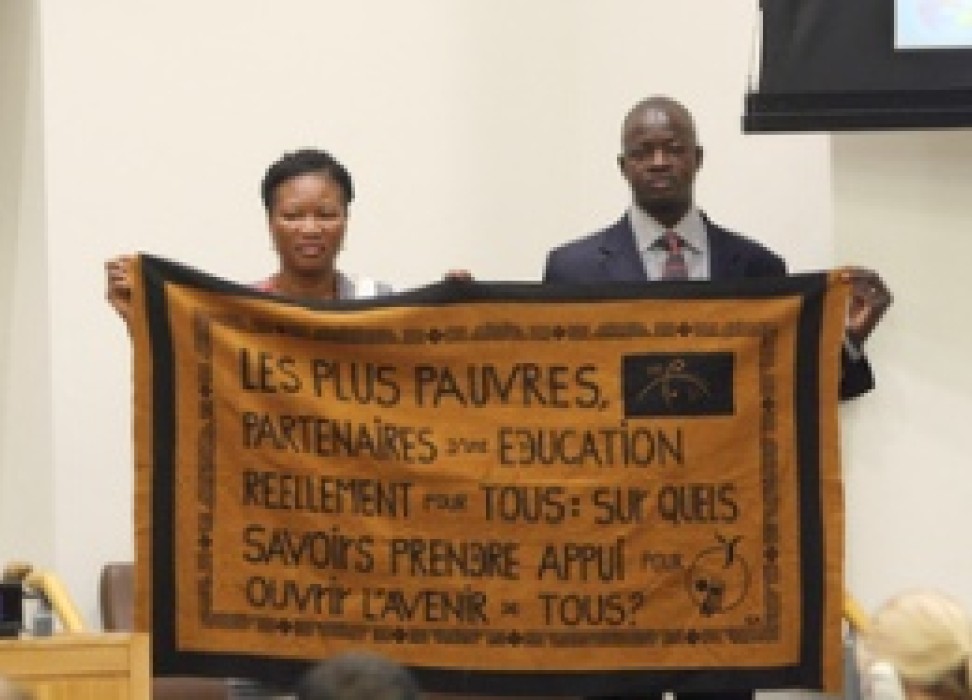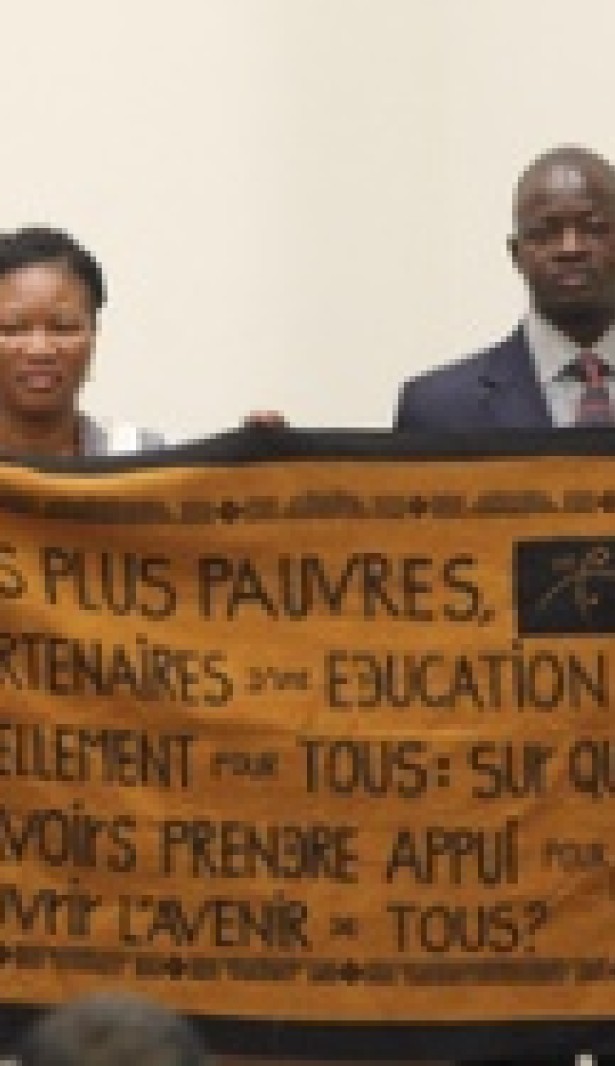Grounding the Post 2015 Agenda in the human rights of people most affected by extreme poverty
01 July 2013

Sharing the lessons learned from the MDGs experience through a participatory action-research project, carried out at grassroots level in 13 countries from all regions, was a goal of the panel discussion entitled "Knowledge from experience: Building the Post 2015 sustainable development agenda with people living in extreme poverty”, organized on 27 June at UN Headquarters by ATD Fourth World, with many co-sponsors including the Permanent Missions of France, Peru and the Philippines.
Presenting concluding remarks on “Taking Post 2015 agenda forward: human rights in the new UN development agenda”, Ivan Šimonović, Assistant Secretary-General for Human Rights, said that “eradicating poverty is a matter of justice and obligation, rather than charitable dispensation”. He underscored that in order to benefit the poor, and also women, minorities, indigenous peoples, migrants, older persons, disabled, the new development agenda cannot be narrowly construed, but must include economic and social rights (the rights to education, to food, to health, to water and sanitation, and to decent work and social security), as well as civil and political rights relating to the administration of justice and political participation, including free expression and association.
Speaking at this panel discussion, organized in the lead up to the General Assembly special event on the MDGs and the Post-2015 process that will take place on 25 September 2013 in New York, Ivan Šimonović stressed that the growing inequality that we see in the North, but also in many countries in the South, is undoubtedly one of today’s major human rights challenges, hence the new agenda should be universally applicable, and seek to ensure equality of both opportunity and result, and non-discrimination, for all. The role of the private sector and business must also be addressed, including the need for adequate regulation, human rights impact assessments and remedies when rights are violated, and for the full application of the UN’s Guiding Principles on Business and Human Rights, he added.
The Assistant Secretary-General for Human Rights declared that “the credibility and effectiveness of the Post-2015 Agenda will also depend on whether it includes strong accountability mechanisms at the international, national, and local levels. The relevant institutions must have clear responsibilities and be subject to accountability where delivery is failing”. He quoted John Rawls claiming in his Theory of Justice that, we should all adopt a strategy which maximizes the prospects of the least well-off, and finally called that “when thinking about the future development agenda, let’s never forget the voices of the poor and marginalized!”
His statement was echoed by other speakers: Olav Kj¢rven, Assistant Secretary-General and Director of the Bureau for Development Policy of UNDP underscored the need for a human and rights-based agenda including people’s participation in its framing and monitoring, for disaggregated data to tackle poverty in its multidimensional aspects, inequalities and social exclusion.
Isabelle Pypaert Perrin, Director General of ATD Fourth World stressed that none of the people resisting the violence of misery should be left behind, that participation of all and free expression are essential, and warned against an agenda with only numbered objectives.
Finally, H.E. Jean-Francis Regis Zinsou, Permanent Representative of Benin and Chair of the Least Developed Countries group emphasized the need to tackle root causes, to ensure participation of the marginalized poor in decision-making, to inform and empower people and thereby enable them to claim their rights, and to provide social protection to all, in the same way Benin has just established universal healthcare coverage for $2/month instead of a real cost of $30/month, the difference being subsidized by the Government.
New York, 1 July 2013

